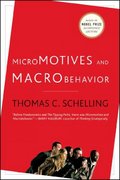Question
Welfare economics refers to the maintenance of market equilibrium, such as by a government entity, in order to ensure that buyers and sellers receive maximum
Welfare economics refers to the maintenance of market equilibrium, such as by a government entity, in order to ensure that buyers and sellers receive maximum benefits in a market. Normally, markets are a function of supply and demand - supply is the ability and willingness of a seller/producer to sell the product at a certain price, while demand is the ability and willingness of a buyer/consumer to buy the product at a certain price. However, if a producer has market power, it means they a degree of control (if not total control) over the supply of the product, and can charge whatever they want to for it, bypassing the laws of supply and demand, thereby requiring welfare intervention.
Taxes, meanwhile, reduce the welfare of buyers, a sacrifice to produce revenues for the government. The result is that sellers produce less and consumers buy less. Taxes ultimately shrink the market.
As far as international trade goes, you can similarly apply the logic of supply and demand, with tariffs like taxes on that trade. When a country allows for trade, they export certain goods and import other goods. Domestic prices can be compared to world prices in making a determination whether to trade for a good. A country that can produce rice on the cheap is going to trade it for something that is more expensive to make in the country, while countries that can make other products cheaper may trade those for the original country's rice.
Ultimately, the final measure of all things produced and all incomes - it is the market value of all final goods and services (not the iron or the rubber, but the automobile that both do) of all goods and services.
Answer the following questions:
- What do you think might be cheaper to produce in a certain country but more expensive in another country? Think about some of the foods and products certain countries are known for and what gives them a competitive advantage to produce them. Why are they not produced elsewhere instead?
- Taxes are a big topic of debate in any presidential election. Usually, more liberal candidates talk about expanding taxes to provide more social services, while conservative candidates usually talk about reducing taxes to expand economic activity, presumably to improve the benefits to producers and consumers. When would the liberal position be more desirable than the conservative position and when is the conservative position more desirable than the liberal position? Or is one position always better than the other?
- Free trade is considered desirable in order to maximize economic activity, which would tend to allow for supply and demand to equalize, leading to the fairest prices that allow for the maximum number of people buying at low enough prices, while the producers sell more units and maximize profits. What happens when free trade is restricted and market power is achieved? Can you think of any industries that do not have fair competition, as with the establishments of monopolies, where one company produces all of the supply of something? Or an oligopoly, where a few companies produce all of the supply of something? Think technology and media - there are quite a few there.
Step by Step Solution
There are 3 Steps involved in it
Step: 1

Get Instant Access to Expert-Tailored Solutions
See step-by-step solutions with expert insights and AI powered tools for academic success
Step: 2

Step: 3

Ace Your Homework with AI
Get the answers you need in no time with our AI-driven, step-by-step assistance
Get Started


